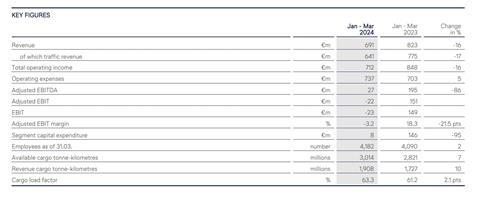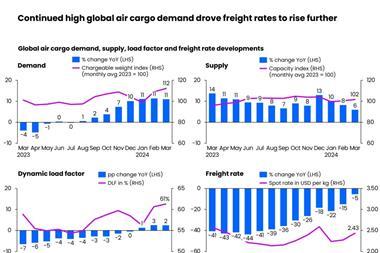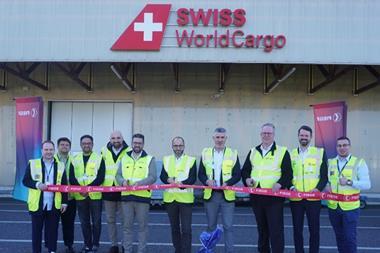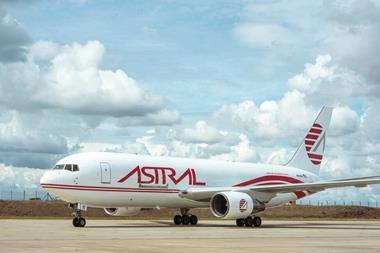Lufthansa's logistics division reported an operating loss in the first quarter of the year due to weakening air cargo rates and strike action.
The logistics division, which includes Lufthansa Cargo, time:matters, Jettainer, HeyWorld and a 50% stake in AeroLogic, saw first-quarter revenues drop 16% year on year to €691m and earnings before interest and tax (ebit) slipped to a loss of €23m compared with a profit of €149m last year.
It is the first time since the first quarter of 2020 that the carrier has reported an ebit loss.
"Operating performance in the Logistics segment declined in the first quarter of 2024 as a result of the challenging market environment in airfreight as well as due to strikes and the strong basis for comparison from the previous year," the airline group said.
Lufthansa said that lower yields resulted in a 17% decrease in traffic revenue for the quarter while costs increased by 5% mainly due to increased staff wages and higher depreciation fees, partially offset by lower fuel costs.
"Yields fell in all of Lufthansa Cargo’s traffic areas and were down 25% overall on the previous year; in the previous year, high demand as a result of global supply chain disruptions combined with limited supply had significantly supported the earnings trend," the company said.
Meanwhile, air cargo traffic increased 10% to 1.9bn revenue cargo tonne kms - reflecting overall market trends - and the cargo load factor improved by 2.1 percentage points to 63.3%.
Capacity for the quarter was up by 7% year on year, mainly due to the expansion of passenger flight operations and the resulting increase in belly capacities.
The overall Lufthansa Group confirmed a first-quarter adjusted ebit loss of €849m, reflecting an impact of more than €350m from industrial action.
Most of the strike action, both within the company and in the wider transport sector, was centred in Germany and its Lufthansa Airlines business was most impacted.
The German carrier has since struck agreements with both ground and cabin crew unions, but will now focus on cost-saving efforts in a bid to counter higher personnel expenses.
















